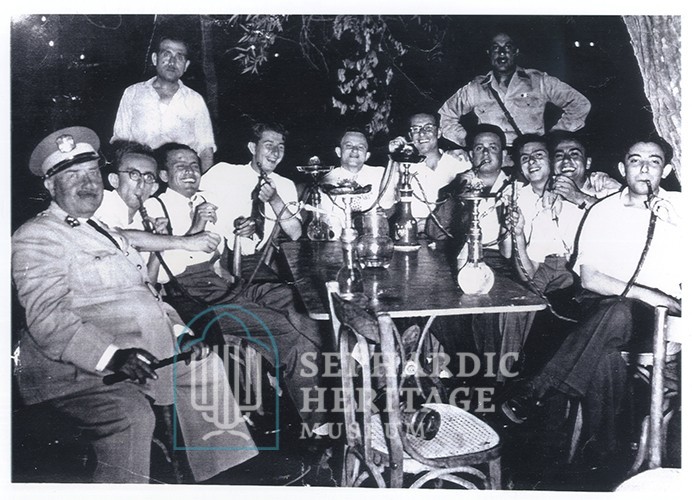|
Getting your Trinity Audio player ready...
|
The Enduring Legacy of Syria’s Jewish Community: A Chronicle of Resilience and Loss
Edited by: Fern Sidman
Syria’s Jewish community, one of the oldest in the world, stands as a profound symbol of resilience, cultural richness, and historical continuity. With origins tracing back to the Second Temple period, this ancient community thrived for centuries, shaping and being shaped by the cultural fabric of Syria. However, as a recently published report in Israel HaYom indicated, the ravages of persecution, war, and displacement have all but erased its physical presence, leaving only a legacy carried forward by its descendants.
For centuries, the cities of Damascus and Aleppo were vibrant hubs of Jewish life in Syria. As the Israel HaYom report highlighted, their Jewish quarters were centers of bustling activity, featuring synagogues, schools, and artisan workshops. These neighborhoods were adorned with unique structures and artifacts, such as Shabbat lamps, kosher storage facilities, and ritual baths, which offer a tangible glimpse into the daily lives of the Jewish community.
The city of Dura-Europos also provides a fascinating chapter in the story of Syrian Jewry. Though not predominantly Jewish, this ancient city housed a stunning synagogue decorated with murals depicting Biblical scenes, including the Exodus and the giving of the Torah. As the Israel HaYom report explained, these murals illustrate the cultural interplay between Jewish and non-Jewish communities in the region, illustrating the integration and distinctiveness of Jewish life in ancient Syria.
The 20th century marked the beginning of a tragic decline for Syria’s Jewish community. As the report in Israel HaYom recounted, anti-Jewish sentiment grew during World War II, culminating in riots in Damascus’s Jewish quarter in 1942. These attacks were driven by unfounded rumors linking Syrian Jews to aspirations for a future Jewish state.
The situation worsened in the aftermath of the United Nations’ 1947 partition vote, which proposed the establishment of a Jewish state alongside an Arab state in Palestine. Riots erupted across Aleppo and Damascus, devastating Jewish neighborhoods. Synagogues were burned, homes looted, and many Jews forced to flee.
One of the darkest chapters, as reported by Israel HaYom, occurred in 1949 at the Al-Manshiyeh synagogue in Damascus. A grenade attack during prayers killed twelve worshippers, most of them children. This act of violence became a grim turning point, marking the beginning of the community’s accelerated exodus.
The civil war in Syria dealt further blows to the remnants of Jewish heritage in the country. As the report in Israel HaYom detailed, the Eliyahu Hanavi synagogue in Jobar, an ancient site linked to the prophet Elijah, was destroyed in shelling. Once-sacred cemeteries have been desecrated, with gravestones vandalized or stolen, erasing some of the last tangible markers of a Jewish presence in Syria.
Today, Syria’s Jewish population has dwindled to only a handful of individuals, a stark contrast to its once-thriving numbers. Yet, as the Israel HaYom report indicated, the descendants of Syrian Jews, particularly in Israel, continue to preserve their heritage through unique traditions, liturgical melodies, and culinary practices.
The longing to reconnect fragmented communities remains strong among these descendants. By celebrating their shared history and passing down cultural traditions, they ensure that the spirit of Syrian Jewry endures. As the Israel HaYom report emphasized, the resilience of this community is a testament to its ability to withstand centuries of upheaval and remain a vibrant part of Jewish heritage.
The story of Syria’s Jewish community is a poignant reminder of the fragility of cultural heritage in the face of persecution and conflict. Yet, it is also a testament to the resilience of human spirit and identity. Despite the near-total erasure of their physical presence in Syria, the legacy of Syrian Jewry lives on, carried by its descendants who honor their past while keeping their traditions alive.
In preserving this legacy, the descendants of Syrian Jews continue to defy the forces that sought to erase them, ensuring that their remarkable history will not be forgotten. As the Israel HaYom report noted, the story of Syria’s Jewish community is not just one of loss but also of enduring hope and survival.





